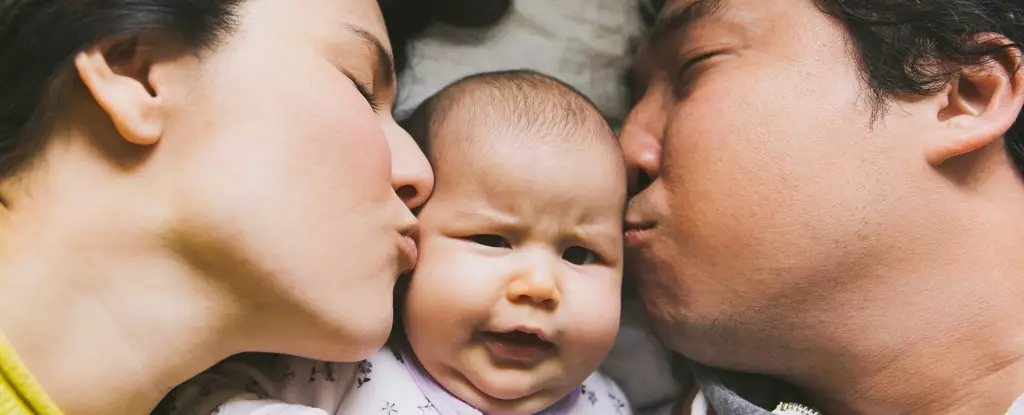In the realm of health and safety, the concept known as “the curse of knowledge” can lead to misguided assumptions. This cognitive bias occurs when individuals, often due to their expertise, mistakenly believe that others share the same level of understanding. As a clinical microbiologist, I have witnessed how this bias can cloud judgment. Recently, an alarming video by Dr. Karan Raj, an NHS surgeon, on TikTok brought to light a critical issue: many people are unaware of the health risks associated with kissing newborns. The response to his message demonstrated that education on this topic is essential, as countless viewers expressed shock upon learning of these dangers.
At birth, a baby’s immune system is not fully mature. This immaturity significantly heightens the potential for severe infections, which may be trivial for older children or adults. For instance, within the first three months of life, infants lack a robust array of immune cells, such as neutrophils and monocytes, which are pivotal in combatting infections. The implications of this deficiency are severe; pathogens that cause mild symptoms in adults can pose life-threatening challenges for a newborn.
Consider the herpes simplex virus, which often manifests as harmless cold sores in adults. For an infant, however, contraction of this virus can lead to grave health issues. While some newborns may recover from localized infections, the risk escalates substantially if the infection spreads systemically, affecting vital organs or leading towards critical conditions. The vulnerability is particularly acute in the first four weeks of life.
In addition to the concerns associated with herpes simplex, newborns are susceptible to a range of infectious agents that typically do not impact older children and adults. One of the most concerning is Group B Streptococcus (GBS). These bacteria may inhabit the gastrointestinal and genital tracts of healthy adults without causing illness, but they can lead to devastating consequences for newborns, including sepsis and meningitis.
Furthermore, strains of E. coli, which are generally harmless to adults, can be perilous for infants, resulting in serious conditions such as pneumonia or bloodstream infections. The fragility of newborns places them in a category of extreme vulnerability, necessitating that parents remain vigilant about their child’s interactions with others.
Parents of newborns must grapple with the often discomforting task of setting boundaries regarding physical affection for their babies. It is crucial for parents to understand that asking visitors to avoid kissing or physically contacting their child is not overreacting; it is an exercise in protecting their infant’s health. A considerate visitor should prioritize the well-being of the baby over their desire to show affection.
If social conventions dictate that a kiss must occur, rigorous hygiene practices should be followed. Washing hands thoroughly is a non-negotiable step, as is avoiding kisses on the mouth or face—a better choice would be a gentle kiss on safer parts of the body, such as the foot or the back of the head. Moreover, if a visitor is experiencing any infection, they might reconsider their visit altogether to prevent possible exposure of the infant to harmful pathogens.
While affection for a newborn is natural and often well-intentioned, the health risks must outweigh the impulse to kiss. In particular, if a visitor has an active infection, such as cold sores, it’s best to avoid contact entirely. For those who feel compelled to visit despite being under the weather, wearing a mask can help to minimize the risk of spreading respiratory illnesses.
It is a difficult balance; showing love and affection for a newborn must be measured against the responsibility of safeguarding them from infections. Being aware of the potential consequences of seemingly innocent gestures is vital for anyone who interacts with babies. This approach ensures that, despite our natural instincts to show love, we do not inadvertently put vulnerable lives at risk.
Drawing attention to the risks associated with kissing newborns is imperative to foster a safer environment around these delicate beings. The educational efforts by healthcare professionals like Dr. Karan Raj should inspire continued discourse on preventing infections that can have traumatic repercussions. By acknowledging the limitations of a newborn’s immune system and taking appropriate precautions, we can protect our most precious and vulnerable members of society. Ultimately, knowledge is power, and collective awareness will pave the way to improved health outcomes for all newborns.


Leave a Reply